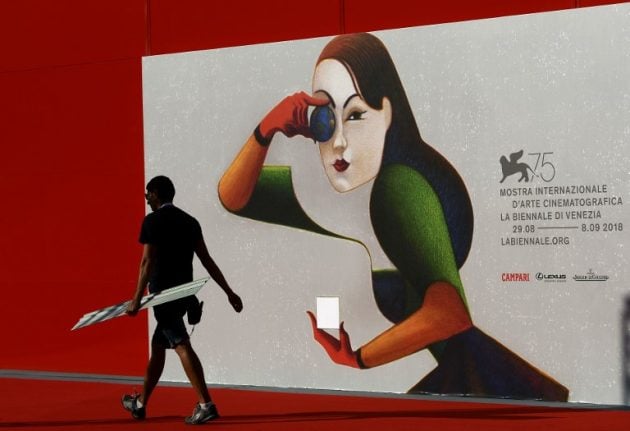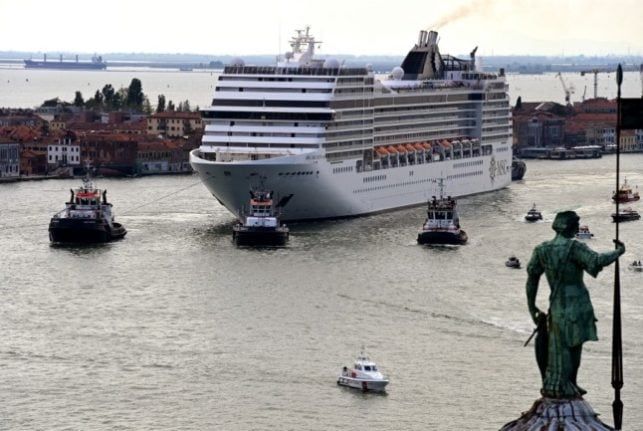FILM
Syrian war documentary wins top Venice prizes
A film that follows two friends through four nightmarish years of the Syrian civil war has lifted some of the top prizes at the Venice film festival, which ends Saturday.
Published: 8 September 2018 15:40 CEST

The Venice film festival ends on Saturday. Photo: Filippo MONTEFORTE / AFP
“Still Recording”, a documentary by Ghiath Ayoub and Saeed Al Batal, records what happened to two idealistic art students after they were swept up in the fervour of the Syrian revolution. It picked up two awards at Venice Critics' Week.
Friends Saeed and Milad leave Damascus and go to Douma in 2011, a suburb under rebel control, to set up a radio station and recording studio. There they struggle to keep a flicker of hope and creativity alive as they endure fighting, siege and famine.
Ayoub and Al Batal, who shot 500 hours of footage, told AFP that with so little reporting coming out of Syria it was important to bear witness.
“We started doing this because there wasn't, and still isn't, an efficient working media in Syria because it's not allowed to enter and if it is, it's under the control of the regime,” said Al Batal.
“Art is nothing if it is not resistance, even if there isn't revolution… it is resistance against a huge amount of emotions you have got inside you. Emotions need to come out and expressing them through art can do that.”
The win comes as the Syrian regime and its Russian allies are preparing to launch an assault on Idlib, the northern province that is the last major stronghold of the rebel and jihadist groups which have been trying to overthrow Bashar al-Assad for the past seven years.
Al Batal said the situation in Syria “is more dangerous than ever now” because the Russian military are more ruthless than Assad's badly trained soldiers.
“They know where to hit, and how to hit hard,” said Al Batal, who said the “media army behind them” was the same.
Url copied to clipboard!


 Please whitelist us to continue reading.
Please whitelist us to continue reading.